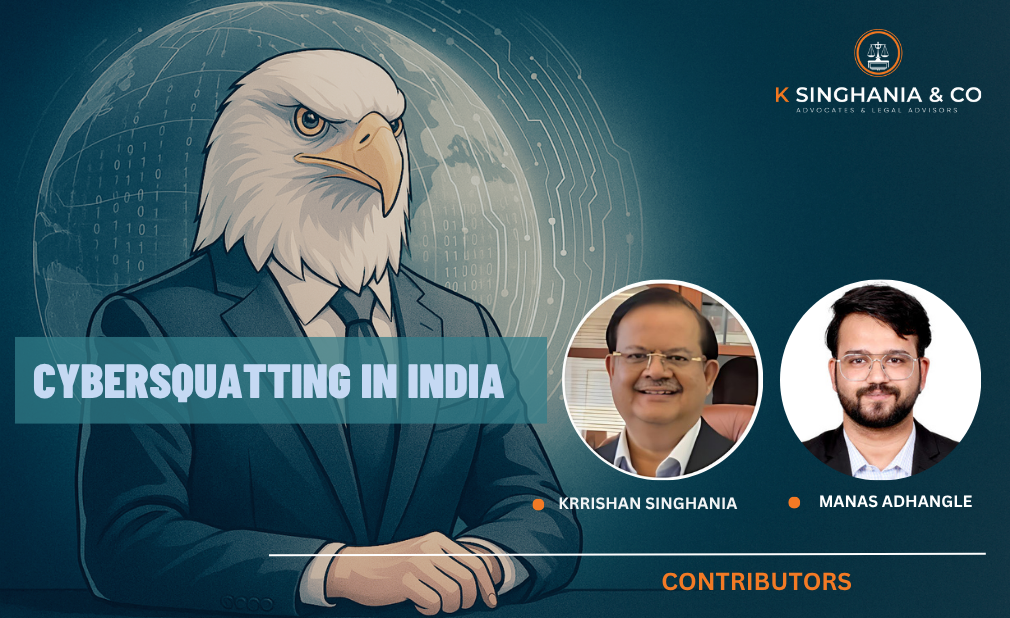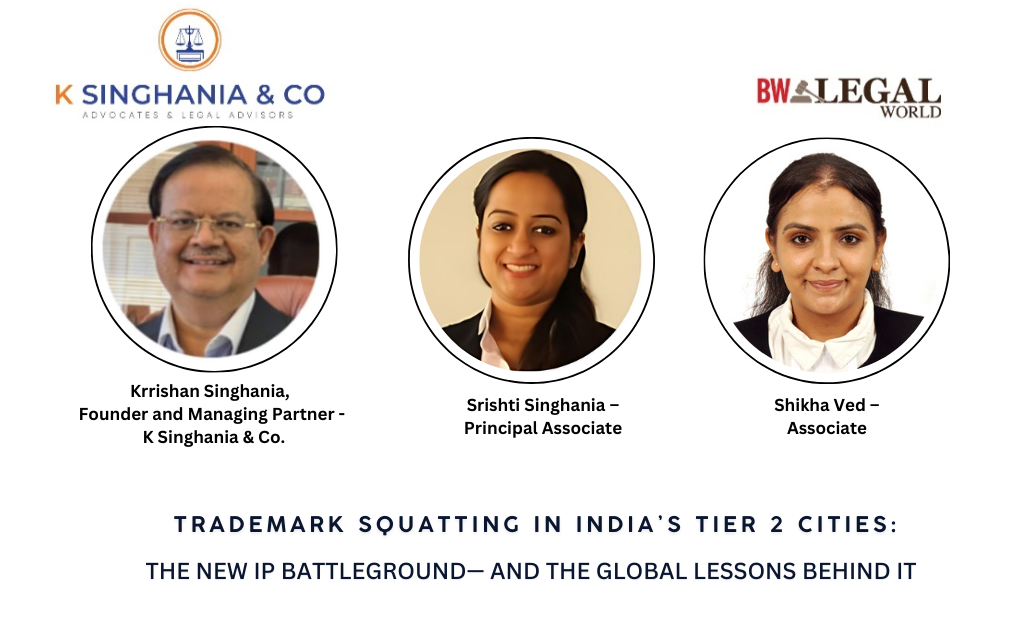Recently, India and Europe have bolstered economic ties, fostering increased cross-border business. The European Union stands as India’s third largest trading partner, accounting for about 11 percent of its merchandise trade, as per an ORF Home Research report.[1]
This essentially means that many European brands are already doing business in India or will be doing business in India. Even if a European brand does not do business in India, there are times, they so famous and reputed and it is still important to protect their mark in India. A brand name/ logo is the most valuable commercial asset to a business and the first step to monetise your brand is to protect the brand name/ logo. Trademark law plays a pivotal role to protect the brand name or the brand logo. In layman words a trademark can be the brand name, a logo or a sign that helps the customers, or the world at large recognise the brand and their products in the foreign market and ensures that there is no unauthorised use of their brand name and goodwill and their products are not manufactured by other manufacturers.
This article is a brief overview of the comparison between laws covering trademark in India and European Union (EU), giving a better understanding to both EU companies and Indian companies doing cross-border trade.
Registration of Trademark
The process of registration of a trademark is broadly similar in India and EU.
European Union
The EUTM system offers trademark owners a unified system of protection throughout EU with the filing of a single application. If successful, this one application results in an EUTM registration, which is recognized in all the EU member states. The initial registration period is 10 years from the date of filing of the EUTM application. The registering authority is the European Union Intellectual Property Office (formerly the Office for Harmonization in the Internal Market), in Alicante, Spain.
India
In India as well, the registration is done through the online portal of the Trademark Registry, which also has a physical office, its head office being located at Mumbai and branch offices being located at Ahmedabad, Chennai, Delhi and Kolkata. The Trademark Application Form is a single application which when accepted results in registration of the mark and is recognised all states in India. The registration period in India is also 10 years.
Principle of “First to File” v “First to Use”
EU follows the principle of “First to File” whereas India follows the principle of “First to Use”.
These principles can be easily understood with the help of an example. There are two companies with the same name ABC limited, one started in 2020 continues to operate without registration of their trademark, and the other started operating in 2022 which registers its mark. In 2024 a conflict arises between both the companies with respect to their trademark. In India, ABC limited that started 2020 will be allowed to continue using the brand name ABC as they were the first ones to use such brand name. However, in EU, the ABC 2022 will be allowed to use the mark as they were the first to file for registration.
However, even though the law in India gives preference to “First to Use” it is always advisable to register your Trademark at the first opportunity to avoid any conflict. Even an application for registration can create a public record of first use.
Protection of Unregistered Trademark
This protection is linked to the concept of “First to File” v “First to Use” as already explained above. In EU as the law is ‘First to File’ there is no protection of Unregistered Trademark.
India
However, in India there is a legal remedy and protection to brands with unregistered trademark under the laws of “passing off”. Passing off is a common law principle that Indian Courts recognise which protect brands with unregistered trademarks from unauthorised sellers passing off copied products as original.
European Union
The EU Trademark Regulation specifies rights exclusively through registration. However, national unregistered trademarks hold weight in inter parties’ proceedings if protected under member state laws, with certain conditions. Unregistered trademark protection primarily operates at a national level, covering passing-off, company names, domain names, etc. The EU Intellectual Property Office lists recognized unregistered rights in its member state guidelines.
Protection of Foreign Trademark
The general law is that protection of a trademark is territorial hence, if a trademark is registered in India, it does not receive any protection in the EU. However, in India the law is a more liberal compared to EU.
India
In India, if a foreign trademark has gained substantial reputation and goodwill in the country due to extensive use or recognition on social media and the internet, it might be protected against unauthorised use by others. Indian courts may even safeguard an international trademark in India despite its non-use within the country, leveraging its reputation in foreign jurisdictions and recognition among the Indian public.
European Union
In EU the law is stricter and there is no such protection for foreign trademarks. However, even in the EU, foreign registrations are relevant for the assessment of unauthorized filing by an agent under the bad-faith ground for invalidity and in practice can be useful for overcoming refusals on absolute grounds by the EUIPO.
Non-usage of a Trademark
Even once a mark is registered, the non-usage of it can lead to cancellation or revocation of such mark.
India
In India, registered trademarks require active commercial use to avoid cancellation due to non-use within five years from registration. Consistent use is vital to retain exclusive rights, however there are exceptions to this rule for instance, if there are legal restrictions or unintentional causes due to which the use is prohibited.
European Union
The EU trademark system, relying on first-to-file, does not mandate immediate use at registration, without an examination of actual usage during the time of protection. However, after five years, non-use or “unnecessary” elements in the goods list can trigger revocation requests or opposition to new applications.
On establishing “genuine use” such non-use can be waived off as well which has been scrutinized by the CJEU and EU’s Court of First Instance. The ‘ONEL/OMEL’[2] case indicated that genuine use in one member state with evidence of expansion could signify genuine use in the EU within the meaning of Article 15(1) of EU Trademark Regulation No.207/2009. Yet, as shown in rulings like Sofa Workshop [2015] EWHC 1773 (IPEC), use in one country may not suffice for an EUTM registration.
In a recent EU Court case (T-386/16)[3], a holder of an EUTM cannot evade non-use revocation by demonstrating use in just one member state (Italy) for goods (doors) deemed basic across the EU. The mark was revoked as proof of use did not justify limiting it to one state, failing the territorial requirement. The trademark in issue in this case was the SILENTE PORTE & PORTE mark designating doors that were ruled to be basic items that could be used by all consumers in the EU. Thus, the territorial requirement for proof of use was not considered satisfied and the mark was revoked.
Legal Remedies Under Indian And European Law
India
In India it is crucial to ensure protection against counterfeit sales and unauthorized use of identical or deceptively similar marks and registered trademarks, which is governed by Section 29 of the Trademarks Act, 1999. As explained earlier, passing off laws are also present to protect marks that are not registered.
In India, there are both civil and criminal remedies available for trademark infringement. Civil remedies can include, compensation of the damages caused by such infringement, injunction to stop the unauthorised use of the trademark, it can also include destruction of the goods containing the unauthorised use of the trademark. Criminal remedies can include fine, imprisonment or both under Sections 103, 104 and 105 of the Trademarks Act, 1999.
European Union
EU trademark infringement operates under civil law as per the EU Trademark Regulation. As per which the adjudication is in the EU member states’ trademark courts. Jurisdiction and remedies align with the involved member state’s procedural rules. Criminal law enforcement for counterfeiting varies across the EU.
EU trademark proprietors and authorized licensees can file infringement actions. Limitation periods vary (3-6 years), and infringement remedies involve prohibition orders, ensuring compliance, damages based on national law, product seizure, information disclosure, and publication of judgments.
Pan-EU relief for trademark infringement exists unless infringement is absent in a specific part of the EU due to linguistic or other reasons, limiting remedies in that area.
CONCLUSION
The Trademark laws in India and the European Union reflect both common principles and notable differences. Both India and EU have a similar registration period, duration of registration and centralized process of registration.
However, the value of registration differs in both countries, EU’s law gives preference to “first to file” giving registration utmost importance, on the other hand, in India, even unregistered marks are protected based on the principle of “First to Use” and protected under the laws of passing off.
Understanding these differences is pivotal for businesses venturing into cross-border operations between India and the EU. By comprehending the nuanced trademark laws, registration processes, and enforcement mechanisms, businesses can navigate the complexities and effectively protect their intellectual property rights while expanding their presence in these diverse and thriving markets.
Further, to conclude, food for thought, with increased cross-border business, import and export of goods to and fro India and EU is also increasing. Unfortunately, in both countries though the Custom authorities do have rights to seize counterfeit goods at the stage of import, at the stage of export, the export of counterfeit/ infringing goods can be tackled only at the custom authorities of exporting countries. Hence, understanding how import and export laws at the Customs protect IP becomes crucial as well. It is also crucial to take swift legal action against the party infringing the trademark and take recourse of both civil and criminal remedies to protect the commercial value of the trademark.
[1] India and European Union in 2023: Building a closer Economic relationship, Available at – http://20.244.136.131/research/india-and-the-european-union-in-2030
[2] Case C-149/11 Leno Merken BV v. Hagelkruis Beheer BV
[3] Falegnameria Universo dei F.lli Priarollo Snc v. EUIPO, Case (T-386/16)






